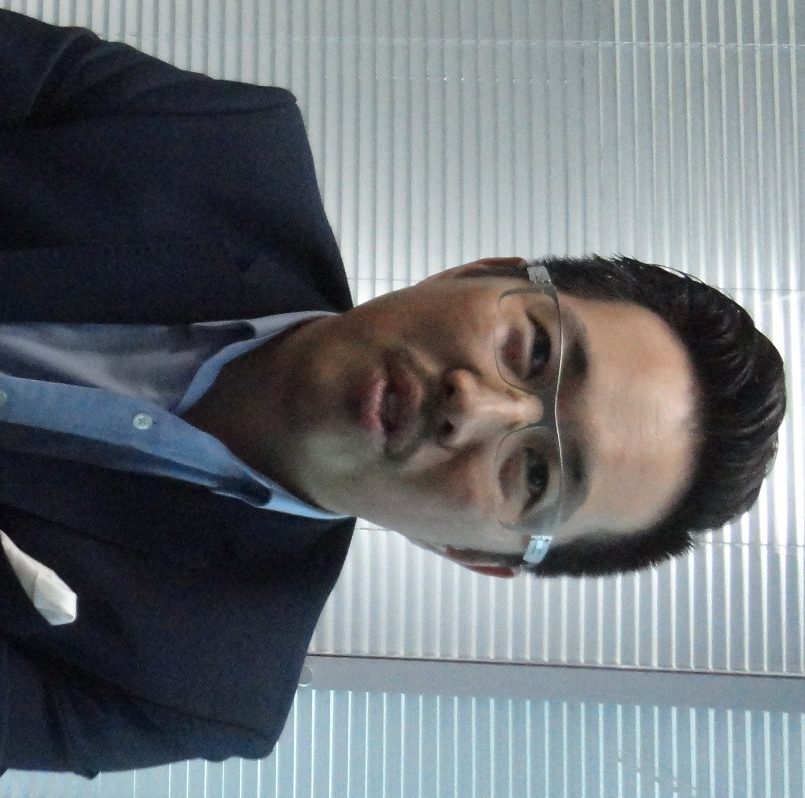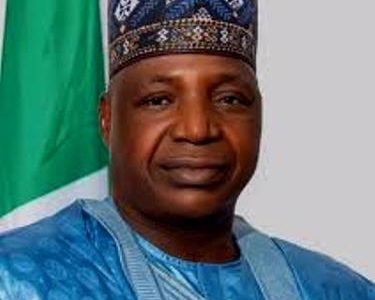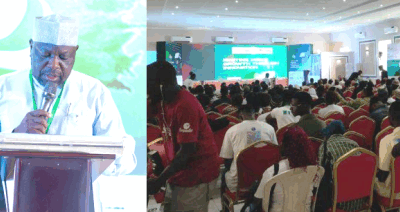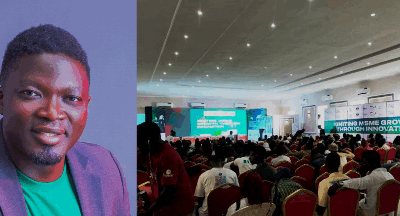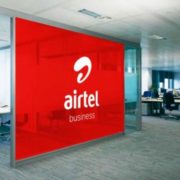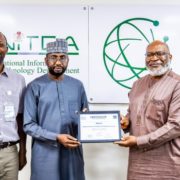In this interview, Yen Choi, chief technical officer of Netcom Africa, an internet provider company located in Lagos, speaks with Anthony Nwosu, IT Edge News, on how the price of broadband can be reduced and why Nigeria offers the best regulatory environment in Africa.
What are your core target areas in Netcom Africa?
Netcom Africa is a one stop shop for all communications and ICT needs. We provide data connectivity services in the form of fibre optic, microwave, and satellite networks. We connect companies to their offices within Nigeria and also internationally. We are also the fastest internet provider in Nigeria, which is why companies who are serious about fast and reliable communications use us. Not only do we provide the communication services to corporate enterprises and global companies, we also manage the entire ICT operations of many of our clients. This means that our clients have a single point of contact for all ICT aspects of their business.
Do you plan to diversify into other areas such as data centre solutions?
Yes. We are constantly expanding our service portfolio. We built one of the first world class data centres in Nigeria in 2004. This data centre is fully equipped with the latest security, safety and power systems and has enjoyed a historical availability of over 99.995%. This type of availability is something that many providers like to promise, but the main difference is that we have already demonstrated it over 11 years of being in business.
Some market analysts believeNetcom Africa solutions aren’t for SMEs and lower end markets – what do you have to say about this?
That’s a tricky question. Our services are for SMEs and lower end markets, and we have many SMEs as customers. What we find is our price points are a bit higher than what lower end SMEs are willing to pay. This is mainly because they compare our prices with consumer grade services such as 3G and 4G. Many of our SME clients have come to us, after failing with consumer based services, and realized that stable, high performing Internet was highly critical to their business operations.The key to good services is not only the Mbps, but also low latency and low jitter, and low packet loss.
What are operational challenges that an organization likes your face in Nigeria?
Power has been a big challenge, and also a big cost. Contrary to popular belief, it is possible to get reliable energy; we have demonstrated that in our data center availability track record. The issue is cost. When multiple generators have to be run, with backup batteries, inverters and rectifiers, all with backups to the backups, the costs start multiplying very rapidly. Our services fill a niche in the market where 95% availability of telecom services will kill a business.Serious companies now strive for more than 99.99% availability. These are not made up numbers, 99.99% means 50 minutes of unavailability per year. We can deliver better than this with well planned out systems, taking into account many factors such as probability of power surges, lightning, rainy season, logistics delays, strikes, fuel shortages, procurement delays and many more we are used to. During the recent fuel shortage lasting over a month, none of our customers were affected. We have been very fortunate in human capacity. As an industry veteran, we have seen many family members of ex-Netcom employees move on to take on top roles in leading telecom companies locally and abroad. This is a confirmation that the expertise and work ethics we have cultivated and developed in-house are in large demand in the industry. We constantly train and recruit fresh graduates, and retain the top.
What moves have you made to expand to other African markets?
We have not expanded into neighbouring countries as of yet, but plan to in the near future. Nigeria is the biggest market in the ECOWAS region, and dwarfs the telecommunication industry in neighbouring countries. Independently, I have been a founding board member of the Nigerian Internet Exchange (ixp.net.ng) which has recently been awarded the contract to build a West Africa Regional IXP. This will greatly enhance the distribution of internet in the region and also create many value opportunities for telecommunication companies across ECOWAS.The internet exchange has made internet much faster in Nigeria by shortening the path between content and the users.
The cost of internet is exceedingly high in Nigeria. How do we reduce cost of internet/broadband?
There are several major components which dictate the cost of internet to the end user. The first segment is the cost of getting internet to the shores of Nigeria. This was once in the range of $2000/Mbps. The cost per Mbps has dropped to a small fraction of what it used to cost, thanks to the new submarine cables of MainOne, Glo-1, WACS, and ACE. The more capacity that is used in Nigeria, the cheaper it will get per Mbps. The second component is the cost of getting the bandwidth from the shores, inland, then to the user. We call this “last mile”, although many times, it can be 10’s or 100’s of kilometres! Surprisingly, these “last mile” costs10X to 100Xof the cost of bringing the internet 8000 KM from Europe. So as you can see, on a $/distance basis, the last mile is a massive portion of the final price. The cost for last mile has not changed much in Nigeria over the last five years. The price will drop as the density of users increase. For example, if there is a small city with only 10 users, the price of last mile will be very expensive. But if that same city has 1000 users, in the same space, then the cost of the last mile will reduce, and each user can get faster speeds. Why? Technologies like fibre optics, work well when the users are close together, as the amount of fiber that has to be laid per user diminishes. On a road of 1KM, with 1 user, that means 1KM of fiber per user. If on the same road, there were 1000 users, then the cost would be only 0.001 KM of fiber per user. So the bottom line is Internet prices will get cheaper in Nigeria, and have been doing so. Prices will drop the fastest in highly populated areas and major cities first.One last thing, internet in South Africa is not as fast as in Nigeria; we have much faster Internet, with latency to Europe of less than 100ms, whereas in South Africa, the latency is over 200ms.
How will you assess the Nigerian ICT space – Do we have the enabling environment to encourage business?
The Nigerian ICT space is growing. Many companies are realizing that their core competence is not ICT. A company that sells cars or a company that builds buildings are experts at exactly that, their core business. They have previously been forced to be experts in ICT, since it was a critical part of their business operations. Now, with dependable managed ICT providers available, who are experts in ICT, they can outsource their ICT operations and breathe easy knowing that their ICT is being taken care of using global best practices. As I mentioned before, one of the key challenges is manpower and talent. For a company not in ICT to be able to search, qualify and hire ICT talent is a disaster waiting to happen. I have been in Nigeria for some time and I can categorically tell you that Nigeria has the most robust and best regulatory guidelines and laws in Africa. NCC has been doing a great job I must say. I think that what Nigeria needs is to have efficient network and not bothered about the type of internet/broadband. The average man in the street wants to be able to access his social media files and upload and I think that Nigeria Communication Commission is ensuring that this works. When it comes to regulatory matters, NCC is the most open minded organization in Africa. If it is about fibre optic cables, look at Nigeria, NCC gave various organizations the liberty to bring in fibre optic cable and lay unlike in other countries. In South Africa, a particular government establishment leases this facility to practitioners. So in terms of regulatory, Nigeria is fantastic. Even in terms of spectrum licensing, I have seen the initiative of NCC and this is fantastic. You will see the exchange point in Nigeria and this makes internet connectivity faster and cheaper. In a nutshell, I feel that NCC is the best telecommunication regulatory body in Africa.
Why would any organization opt for Netcom Africa? What are the unique selling points?
Our first and second selling points are QUALITY. Netcom is the first and only ISO9001:2008 and TL9000 certified company in Africa. This means that we are a quality focussed company. We do this deliberately by strict adherence to documentation of processes and procedures and regular audits. This enables us to be able to deliver consistency. Consistency is difficult to achieve when there are operations consists of many employees of various skill and experience levels. ISO9001:2008 and TL9000 help us with this. Many of our global companies demand this level of certification from their service providers to be able to match service levels in Nigeria to what is available in the rest of the world. Our third selling point is SOLUTIONS. We don’t just sell services; we are your enabler to solve business problems. We help companies save money, we help companies be more productive, we help companies shorten delivery times, and we help companies make more profit. Our experts have experience in all industry sectors, so we are able to understand the key objectives of business owners and CEOs and provide unbiased industry expertise to help them use ICT to grow.
What were the basic hiccups that you faced while starting your firm and what is your future projections?
When starting Netcom, our focus was general “Internet” for everyone which meant consumers and businesses. We quickly realized that the way to make the biggest impact was to position ourselves as the “Ferrari” of Internet Providers; fast, ultra high end, exclusive, and built to perform. We will take this vision forward to become the largest provider of managed ICT services in Africa in the near future. Management of ICT has evolved and will continue to evolve in the future. What was once an assortment of manual tasks, are now fully automated, and automation means less errors. What once required a team of 10 people can now be performed with five people + software. We see this as the growth of efficiency. Companies, especially now, turn to us to find solutions to save costs.
Ookla Speed test puts Netcom Africa as the fastest broadband provider in Nigeria. What have you done to ensure that distant cities can access your services?
Speedtest.net is an independent site, where users test their providers. We have been number one on Ookla Speed test for several years. I first found out about it looking at a blog from a Google Event, where one of the reporters said that Internet in Nigeria was faster than in Europe. Netcom was the provider for bandwidth on that event! Often we are 200% – 300% more than the second place entrant, and the rest are all very close to the second place entrant. We see this as positive proof of the quality and speed of our network. One thing we are more proud of is that we are the only provider with a Five Star rating. This means the people not only like the speed, but they actually like us as a company. We are a service company, and our primary goal is to make our customers happy. Five Stars is a good sign. For other regions, we have customers all over the country, even in Oshogbo, Ibadan, Port Harcourt, Warri, Abuja, Kano, Minna, Katsina, etc. Speeds for services in these locations are equivalent to what is attained in Lagos or Abuja.
As a stakeholder in data warehousing and data centre facility what is the future?
The future belongs to the software. A lot of hardware would be trimmed and a lot of jobs would be created and lost at the same time. Automation will make jobs like network engineers and troubleshooting obsolete, it will be automation. Software will automatically automate these troubles and correct them. In terms of data centre, one of the most basic problems in data warehousing is the enormous cost of cooling system especially in tropical countries like Nigeria with a lot of heat and humidity. I think people have started looking at the poles. I mean countries are thinking of building data centres in South Pole, North Pole and Antarctica. Yes it is very possible and this is a place that has all year round natural cooling system and it is not yet colonised. All a country need to do is to muster courage and plant her flag there and build data centre facility. It is possible and people are thinking about that.
“NCC is the most open minded organization in Africa. If it is about fibre optic cables, look at Nigeria, NCC gave various organizations the liberty to bring in fibre optic cable and lay unlike other countries. In South Africa, a particular government establishment leases this facility to practitioners.”
“There are several major components which dictate the cost of internet to the end user. The first segment is the cost of getting internet to the shores of Nigeria. This was once in the range of $2000/Mbps. The cost per Mbps has dropped to a small fraction of what it used to cost, thanks to the new submarine cables of MainOne, Glo-1, WACS, and ACE.”

